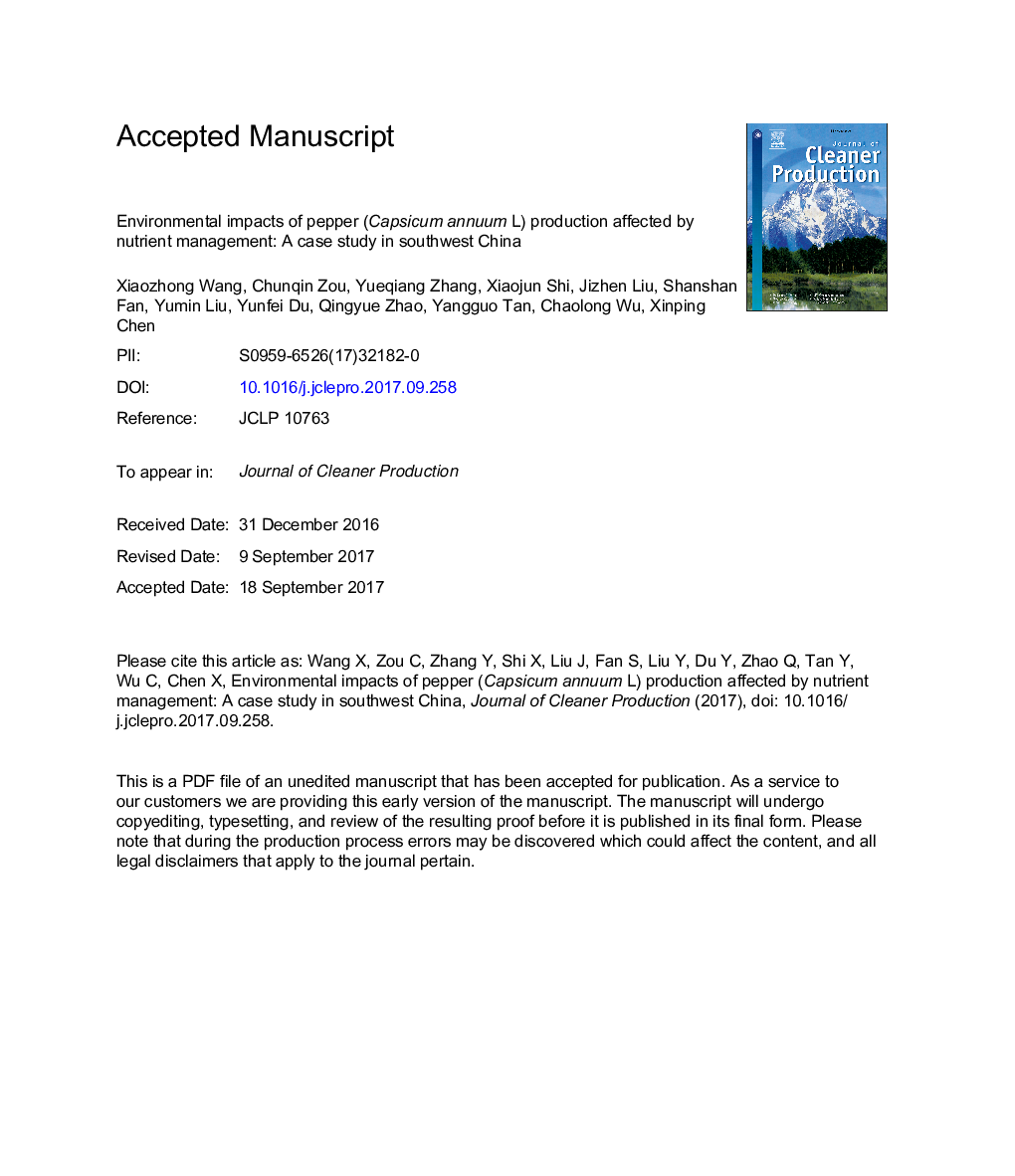| Article ID | Journal | Published Year | Pages | File Type |
|---|---|---|---|---|
| 8100322 | Journal of Cleaner Production | 2018 | 39 Pages |
Abstract
Intensive vegetable production can cause considerable environmental risks, but quantitative evaluation for a regional/crop specific system and further establishment of best management practices to reduce the environmental risks, are still lacking. In this study, based on 160 farmer survey data, we used life cycle assessment to quantify the global warming, eutrophication, acidification and energy depletion potentials for pepper production in southwest China, and further to identify the key measures to reduce the environmental impacts by evaluating the effects of various nutrient management practices among farmers. Results showed that the mean total global warming, eutrophication, acidification, and energy depletion potentials of the 160 farmer fields were 368 kg CO2-eq tâ1, 1.52 kg PO4-eq tâ1, 7.93 kg SO2-eq tâ1, and 184 kg MJ tâ1, respectively, being 2.0, 2.3, 5.5 and 0.69 times greater than the corresponding mean values for other vegetable crops in different areas of the world. Based on differences in pepper yield and nitrogen use efficiency, the 160 fields were categorized into 4 groups showing significant differences in various environmental impacts. The global warming, eutrophication, acidification, and energy depletion potentials in the high yield and high nitrogen use efficiency (HH) group were 37.3, 34.4, 33.9, and 35.5%, respectively, lower than the average of all 160 farmers' fields. Further analysis showed that the reduction in environmental risks for the HH group were mainly accounted for by lower application rates of N and P fertilizer by 6.94% and 12.2%, higher application rates of K fertilizer by 11.9%, and higher yield by 34.8%, respectively. This study highlights the importance of optimizing nutrient management in vegetable production based on farmers' practice, which could achieve more yield with less environmental impacts, and thereby avoid the “trade-off” effect between productivity and environmental sustainability.
Keywords
Related Topics
Physical Sciences and Engineering
Energy
Renewable Energy, Sustainability and the Environment
Authors
Xiaozhong Wang, Chunqin Zou, Yueqiang Zhang, Xiaojun Shi, Jizhen Liu, Shanshan Fan, Yumin Liu, Yunfei Du, Qingyue Zhao, Yangguo Tan, Chaolong Wu, Xinping Chen,
